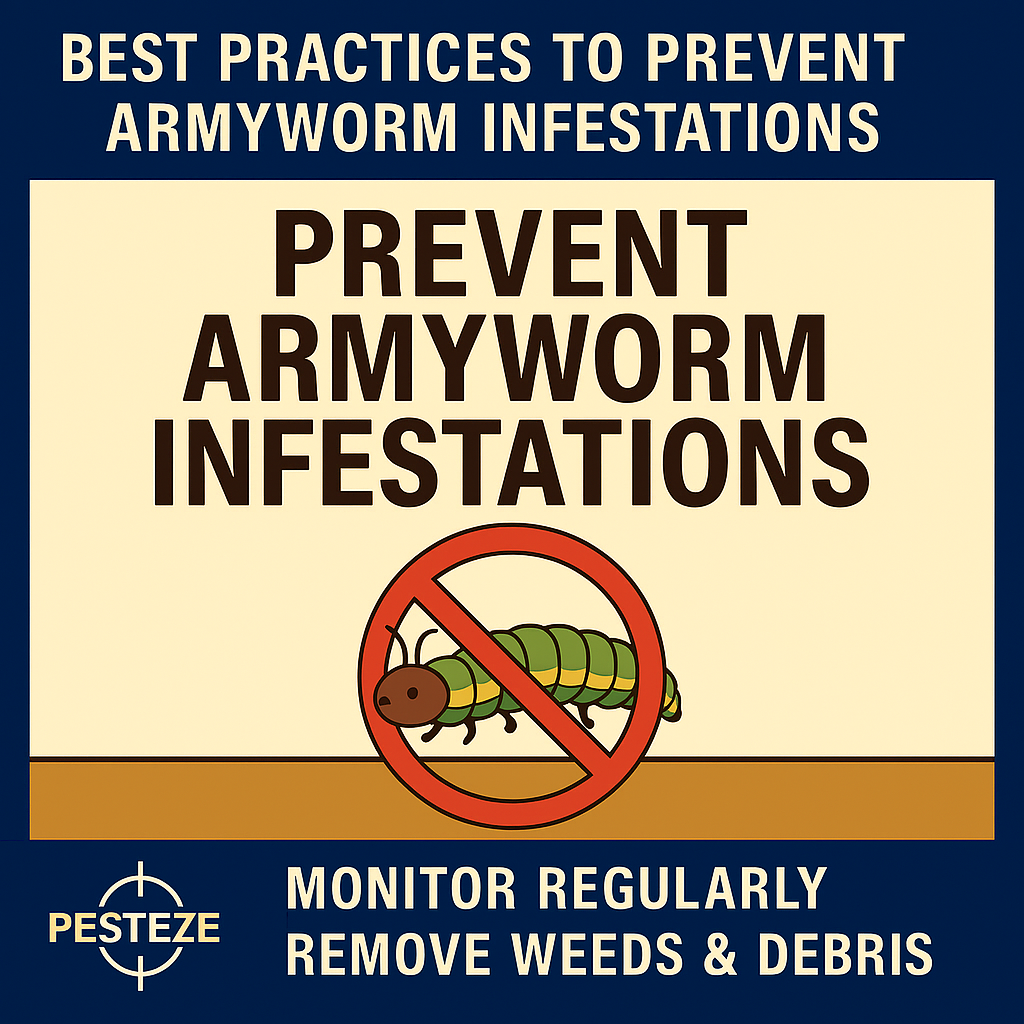STOP ARMYWORMS BEFORE THEY STRIKE – BEST PRACTICES TO PROTECT YOUR CROPS

STOP ARMYWORMS BEFORE THEY STRIKE – BEST PRACTICES TO PROTECT YOUR CROPS
Summary
Armyworms are destructive pests that can quickly devastate crops, especially corn, rice, and small grains. Preventing infestations is more effective than controlling them after they spread. By following proven agricultural practices, natural remedies, and regular monitoring, farmers can successfully keep armyworms at bay and protect their harvest.
Features
-
🌱 Rotate Crops – Break the pest life cycle by alternating corn and grains with non-host plants.
-
🦋 Promote Natural Predators – Attract beneficial insects and birds that feed on armyworms.
-
🌿 Use Organic Repellents – Apply neem oil, BT (Bacillus thuringiensis), or garlic sprays.
-
🚜 Practice Good Soil Tillage – Plow after harvest to destroy pupae hiding in soil.
-
💧 Maintain Crop Health – Proper watering and fertilization strengthen plants against damage.
-
🔍 Regular Field Scouting – Inspect plants weekly for egg masses and early signs of feeding.
Guide Description
Armyworms are among the most damaging pests in agriculture, capable of wiping out fields overnight. Known for their rapid spread and group-feeding behavior, they attack the leaves and stems of crops such as corn, rice, wheat, and sorghum. The good news is that farmers can greatly reduce the risk of infestations through preventive practices.
One of the most reliable strategies is crop rotation. By alternating susceptible crops with non-hosts such as legumes, you disrupt the food chain that armyworms rely on. This simple step significantly reduces the likelihood of large infestations returning season after season.
Another key measure is promoting natural predators. Beneficial insects like parasitic wasps, lady beetles, and lacewings, along with birds and ground beetles, act as natural control agents. Encouraging biodiversity in your fields helps maintain a balance that keeps armyworm populations under control.
Farmers committed to sustainable solutions can also turn to organic repellents. Neem oil, garlic sprays, and Bacillus thuringiensis (BT) are widely used natural treatments that target armyworm larvae without harming beneficial organisms. These methods are effective, eco-friendly, and safe for crops.
Tillage practices also help prevent infestations. After harvest, plowing or discing the soil exposes and destroys armyworm pupae that overwinter underground. This reduces the number of adult moths that emerge to lay eggs in the following season.
Equally important is maintaining strong crop health. Stressed or undernourished plants are more vulnerable to pest attacks. Proper irrigation, balanced fertilization, and healthy soil conditions create resilient crops that can better withstand damage.
Lastly, regular field scouting ensures early detection. Inspect crops weekly for egg clusters, caterpillars, and feeding damage. Spotting an issue early allows for localized treatments rather than costly, widespread interventions.
By combining these best practices—cultural, biological, and preventive—you can greatly reduce the risk of armyworm infestations. Consistent application of these methods helps secure a healthier harvest, minimize crop loss, and reduce reliance on chemical pesticides. Prevention is always more cost-effective than damage control, making it the most powerful tool against armyworms.
- Devansh Subbagari


Comments 0